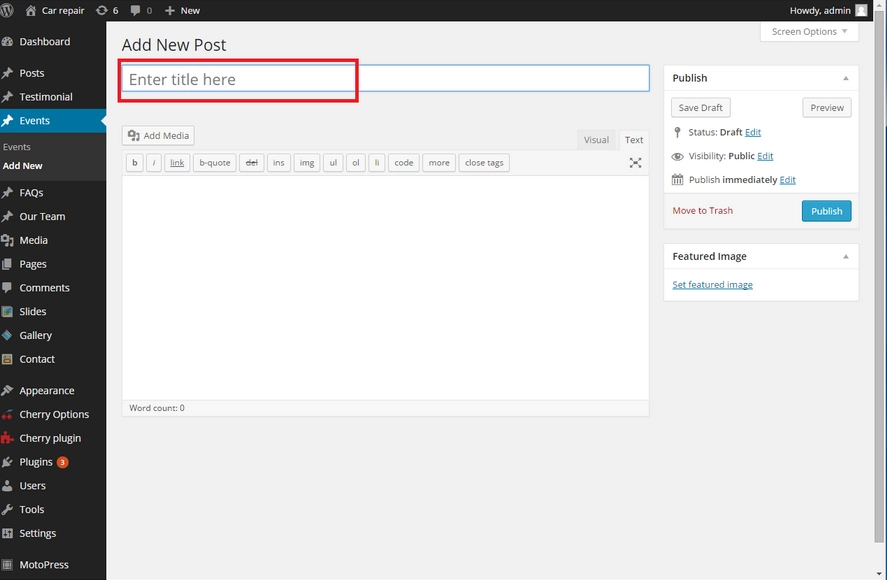Table of Contents
Employee motivation is the lifeblood of a thriving workplace, influencing productivity, creativity, and overall job satisfaction. In this comprehensive guide, we delve into the critical aspects of motivation, particularly focusing on how to motivate burned out employees and rejuvenate their enthusiasm.
Why is Employee Motivation Crucial in the Workplace?
Employee motivation is the cornerstone of a vibrant and productive workplace. Motivate your burned-out employees to not only perform better but also contribute positively to the overall work environment. When employees are motivated, they are more engaged, innovative, and committed to achieving both personal and organizational goals.
What are the Signs of Burnout in Employees?
Recognizing the signs of burnout is pivotal in addressing the issue effectively. Common indicators include persistent fatigue, decreased job performance, heightened irritability, and a sense of disillusionment. Understanding these signs allows for timely intervention, preventing burnout from becoming a chronic issue.
How Does Burnout Affect Employee Productivity?
Burnout takes a toll on employee productivity, leading to increased errors, missed deadlines, and a general decline in work quality. Motivate your employee today as motivated employees are more likely to overcome burnout challenges and regain their peak performance.
What Role Does Leadership Play in Employee Motivation?
Effective leadership is integral to employee motivation. Leaders set the tone for the workplace culture, influencing the motivation levels of their team. Leaders who prioritize employee well-being and provide support during challenging times contribute significantly to motivation.

Addressing Burnout: How to Motivate Burned Out Employees
In addressing burnout, leaders must adopt a compassionate and tailored approach. Recognizing individual needs and concerns allows for personalized strategies to reignite motivation. Leaders can organize one-on-one sessions to understand the specific causes of burnout and tailor motivational plans accordingly.
Are Personalized Approaches Effective in Motivating Burned Out Employees?
Absolutely. Personalized approaches acknowledge the unique needs of each employee. Tailoring motivational strategies to an individual’s preferences and goals fosters a sense of value and appreciation, crucial elements in combating burnout and revitalizing motivation.
How Can Recognition Programs Boost Employee Morale?
Recognition programs are powerful tools for boosting employee morale. Acknowledging and appreciating employees for their hard work and accomplishments creates a positive work environment. This recognition serves as a motivational factor, encouraging employees to strive for excellence.
What Impact Does Work-Life Balance Have on Burnout Prevention?
Maintaining a healthy work-life balance is instrumental in preventing burnout. Encouraging employees to prioritize their well-being outside of work contributes to long-term motivation. Organizations that value and support work-life balance create an environment where employees feel cared for and motivated.

How to Foster a Positive Work Environment for Employee Well-being?
Implementing Strategies: How to Motivate Burned Out Employees
Implementing motivational strategies begins with creating a positive work environment. Encourage open communication, establish clear expectations, and provide avenues for professional growth. A positive work culture fosters resilience, making it easier for employees to overcome burnout challenges.
What Training and Development Opportunities Can Help Combat Burnout?
Investing in continuous training and development opportunities is a proactive approach to combat burnout. Offering skill enhancement and career development programs not only boosts employee confidence but also provides a clear path for advancement, reigniting motivation.
How Can Flexible Schedules Alleviate Employee Burnout?
Flexible schedules offer employees the autonomy to manage their work and personal commitments effectively. This autonomy alleviates stress and burnout, as employees can adapt their schedules to accommodate their individual needs. Flexibility fosters a sense of control and, subsequently, motivation.
Why is Open Communication Essential in Addressing Burnout?
Open communication is the bedrock of addressing burnout. Establishing transparent channels for employees to express concerns, share ideas, and seek support creates a supportive work environment. Leaders who actively listen and respond to employee needs are better equipped to address burnout effectively.
How to Set Realistic Goals to Prevent Employee Burnout?
Setting realistic goals is crucial in preventing employee burnout. Unrealistic expectations can contribute to stress and demotivation. Collaboratively setting achievable and challenging goals ensures that employees are engaged and motivated, fostering a sense of accomplishment.
What Role Does Company Culture Play in Motivating Employees?
Company culture profoundly influences employee motivation. Cultivating a positive and inclusive culture, where employees feel valued and connected, promotes motivation. A strong company culture aligns employees with the organization’s values, creating a shared sense of purpose and drive.
Navigating Burnout: How to Motivate Burned Out Employees
Navigating burnout requires a multifaceted approach. Regularly assess the well-being of your team, implement proactive measures to prevent burnout, and be responsive to the individual needs of each employee. Navigating burnout is not just about resolving current challenges but also about creating a resilient and motivated workforce for the future.
How Can Employee Engagement Programs Improve Morale?
Employee engagement programs foster a sense of belonging and connection. Initiatives such as team-building activities, mentorship programs, and social events contribute to positive morale. Engaged employees are more likely to overcome burnout challenges and remain motivated in their roles.
Why Should Managers Encourage Self-Care Practices Among Employees?
Encouraging self-care practices is paramount in preventing burnout. Managers should promote self-care activities, such as mindfulness sessions, wellness programs, and flexible work arrangements. Prioritizing employee well-being ensures that burnout is proactively addressed, fostering sustained motivation.
In conclusion, understanding the significance of how to motivate burned out employees and proactively addressing burnout is pivotal for creating a resilient and high-performing workforce. By implementing personalized strategies, fostering a positive work environment, and prioritizing employee well-being, organizations can cultivate a motivated and engaged team. Remember, a motivated workforce is the foundation of a thriving and successful organization.














Leave a Reply